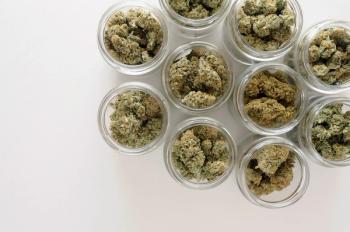
Cannabis Industry Standards, Regulations, and Rescheduling: Perspectives from Darwin Millard
Here, Darwin Millard, Technical Director of CSQ, discusses the present and potential future of cannabis standards and regulations.
In this interview, Darwin Millard, Technical Director of Cannabis Safety & Quality (CSQ) explains why standards are crucial in the cannabis industry, discusses how federal rescheduling of cannabis would affect the standards of cannabis products, provides a detailed description of what he would like to see change in cannabis regulations in the future, and shares more about his new role with CSQ.
As a Vice-subcommittee Chair with ASTM International, he will also be leading two ASTM committee meetings at the Cannabis Science Conference Spring in Kansas City, Missouri May 7–9, 2024!
Watch the video and read the transcript below to hear insights from Darwin Millard on cannabis standards, regulations, and accreditation.
Why are standards development organizations crucial in the cannabis industry?
Darwin Millard: Great question. Standards organizations and well, standards in general, are really needed because these fill in gaps, right? We have laws, laws are like your skeleton—this is not my analogy, but it's a good one—laws are like a skeleton, and then you get regulations put on top of those. So some connective tissues, some muscles and ligaments and stuff like that. But there's still a lot to a body, a human being, than just the skeletal system and your muscle system, right? You've everything, you've got skin, and all those other things. So that's really how standards help come in and fill in those other gaps. They're there so that licensed operators can conform to those regulations more easily so that that way, they're in compliance with the law. That's really why these are so critical and their function right within industry. Standards development organizations like Cannabis Safety and Quality, ASTM International, AOAC, and others are here to help develop those standards that are used to facilitate commerce and promote higher quality and safer products in the marketplace for consumers.
How would federal rescheduling of cannabis affect standards for testing, safety, and quality of cannabis products?
Millard: Another great question. I know a lot of people are really frightened or they're nervous about what rescheduling will mean, and quite honestly, I don't see it changing anything in regards to our state by state operations, those aren't going to really change. But what it will do is it's going to have a tremendously positive impact on the market by opening the floodgates in regards to federal research dollars being able to actually come into this marketplace. Right now, while the red tape is slightly less restrictive—you have less of it to go through with latest mandates from Congress and NIH [National Institute of Health] to help with this research—it's still hard to get those grant dollars. So with this really all that's going to do is make it significantly easier because it'll recognize the medical value that we've always known that this plant and the cannabinoids have. It'll allow more research to happen, research we desperately need because that'll give us a good data, and that data is going to be the foundation for the standards that we will build to effectively commodify our marketplace.
What would you like to see change in regard to cannabis regulations in the next five years?
Millard: What I think would be a good change is maybe a tiered regulatory system or licensing system for not only cultivation but processing of Cannabis sativa L. plants. So if you're going to grow for fiber, for instance, or for stock, let's just say, if you're going to grow for producing this stock, a high quality stock, potentially for fiber. If you're really growing for that, and that's your crop, then you don't care about flower. And in fact, if you really want textile grade, high quality spinnable fiber you want to harvest as early as you can—between 100 and 150 days. And at the 150 day mark, you don't have flower production yet. So that's a really easy tier one level type of licensing structure that would allow much more production of fiber acreage getting licensed out there because you no longer need to test for cannabinoids as long as, say, there's specifications, maybe a standard, that's in place that would say if you harvest no later than 150 days, then no cannabinoid testing is required because there are no cannabinoids to be concerned about.
Maybe level two is, you want to grow for seed and because you want to harvest the actual seed food or for whatever purpose to make seed, the plants have to germinate seed and to do that, that means they have to go through their maturity cycles, which means they produce resins, but the harvesting of that seed, whether it's mechanical or not, typically involves a threshing process and that threshing process is like an initial cleaning. And then seeds are always cleaned after that. They're cleaned to get rid of small parts, little green things that are super immature seeds to get you just a nice clean, mature actual seed. And that process removes all the rest of the cannabinoids. So perhaps if there were standard practices in place to inform the farmer on how to do a proper threshing, or remove collection of seed and then cleaning of seed, then you would, again, no longer need to have cannabinoid testing because during those processes you've also destroyed all of that plant material that had resin content in the actual process of recovering that you wanted, which was the seed.
And then let's say you want to grow flower for non-intoxicating cannabinoids, maybe that's level three. In each one of these is higher risk—risks to whom? Risk to presumably public health and safety, which is what your regulators are concerned about, and diversion, and stuff like that.
Then, of course, you have your level four highest level: you're now growing for intoxicating cannabinoids, and therefore can do everything else if you wanted to, because you have the highest, most restrictive tiered level type of licensing structure. So with respect to regulation, that's what I would like to see happen in the next five years because that licensing structure makes sense and it focuses on the reason for why you're growing this crop rather than any arbitrary cannabinoid content level or any other constituent that you're actually trying to dial in on as the delineation for this crop. Because unfortunately, we have really muddled the waters on what hemp is. And since hemp is now everything including cannabinoids, well, then that means it's cannabis, y'all. So we need to be smart about how we structure our conversations and the standards in our marketplace that will allow us to create common sense regulatory frameworks that will be in compliance, but not only local government, federal government, but also internationally with treaties and trade harmonizations with other countries.
Can you tell us about your new position as the Technical Director of CSQ?
Millard: I did a really great April Fool's joke for the industry and let everyone know that I was leaving, that I was exiting. I got a few people, which I honestly didn't think anyone would believe that Darwin would ever leave the cannabis industry. So when I got calls at five o'clock in the morning here from Australia with people literally freaking out being like, “No, we need you!” I had to remind them that it was April 1st. Well, for them, technically, it was April 2nd. So that was fun. But I technically did exit the non-formal portion of the cannabis industry and stepped into my first formal corporate opportunity as the new Technical Director for Cannabis Safety & Quality, which is one of the first ANAB [ANSI National Accreditation Board] accredited safety and quality management systems for the manufacture of cannabinoid containing products to both meet ISO requirements as well as each state by state regulatory requirements in the United States. It gives us an opportunity to help provide a credited quality management system for the marketplace to become certified to. Not every certification program is created equal. And ours is accredited, which gives it that extra level of reputation within industry. So when your regulators are coming in and they see a CSQ certification, they recognize that you mean business and want to stay in business. So we're here to support the industry as a whole as well as creating necessary standards and certification programs for the entire supply chain. I'm really looking forward and excited to being able to promote the expansion of the CSQ program, the certifications that we provide, including stepping into product certifications and other certifications that will support the entire whole global supply chain for cannabis raw materials and consumer facing goods.
Newsletter
Unlock the latest breakthroughs in cannabis science—subscribe now to get expert insights, research, and industry updates delivered to your inbox.



